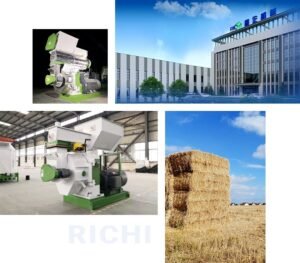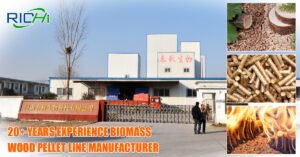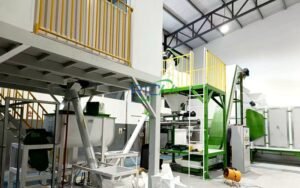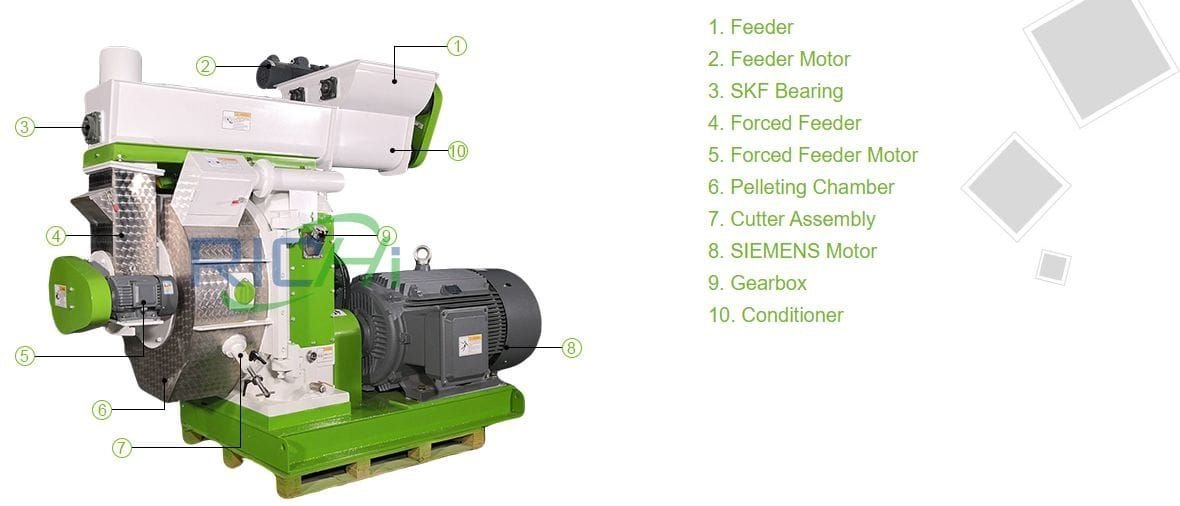
The organic fertilizer industry in Mexico presents significant opportunities for entrepreneurs looking to tap into a rapidly growing market. With increasing awareness of sustainable farming practices and government initiatives aimed at reducing dependence on chemical fertilizers, the outlook for establishing an organic fertilizer processing business in Mexico is promising. This article examines the factors that make this venture attractive, as well as the challenges that must be addressed.
Growing Demand for Organic Fertilizers
Mexico’s agricultural sector is undergoing a shift towards more sustainable practices, influenced by several key factors:
- Environmental Concerns: Farmers are becoming increasingly aware of the long-term environmental impacts of chemical fertilizers, leading to a heightened interest in organic alternatives.
- Consumer Preferences: There is rising demand for organic produce in both domestic and export markets, driving farmers to adopt organic farming methods.
- Government Initiatives: The Mexican government is actively promoting the use of organic fertilizers to reduce reliance on imported chemical fertilizers and support small-scale farmers.
- Soil Health: There is growing recognition of the importance of soil health and biodiversity, encouraging the use of organic fertilizers that enhance soil structure and microbial activity.
These trends indicate a burgeoning market for organic fertilizers in Mexico, creating ample opportunities for new businesses in this sector. (Related post: bio fertilizer plant project cost )
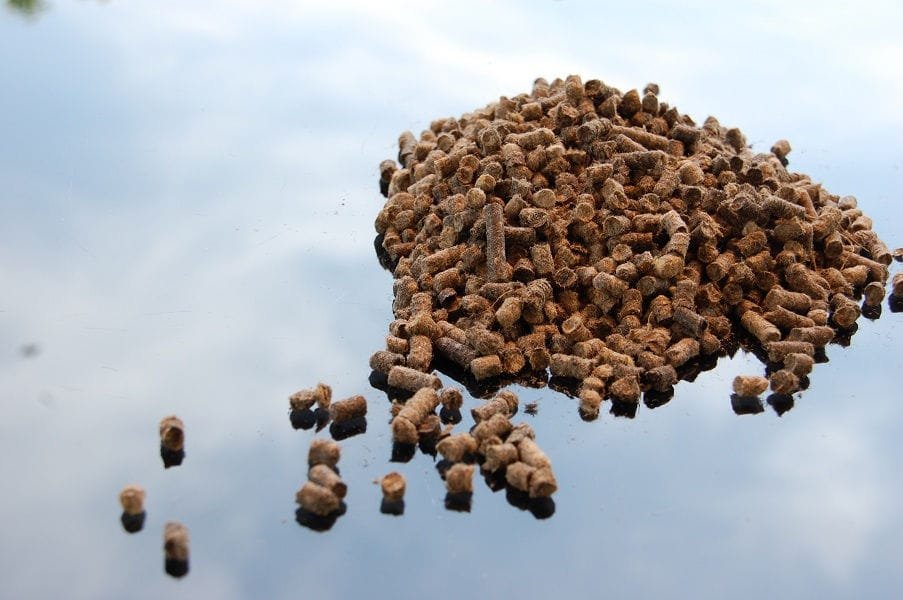
Government Support and Policies
The Mexican government’s favorable stance on organic fertilizers creates a supportive environment for new businesses:
- Fertilizer Self-Sufficiency: The government aims to make Mexico self-sufficient in fertilizer production, including organic fertilizers, fostering a positive climate for domestic producers.
- Investment in Production Facilities: PEMEX, the state-owned petroleum company, is investing heavily in fertilizer production facilities, which may include organic fertilizer production lines.
- Subsidies and Programs: The “Fertilizers for Welfare” program, which provides free fertilizers to small farmers, could potentially expand to include organic options, creating a substantial market.
- Research and Development Support: Government-backed agricultural research institutions are likely to support the development and testing of new organic fertilizer products.
Raw Material Availability
Mexico is rich in raw materials suitable for organic fertilizer production:
- Agricultural Waste: The country’s large agricultural sector generates significant amounts of crop residues and animal manure, ideal for processing into organic fertilizers.
- Food Processing Byproducts: Mexico’s food industry produces organic waste that can be composted or processed into fertilizer.
- Seaweed and Fish Waste: With extensive coastlines, Mexico has access to marine-based organic materials suitable for fertilizer production.
- Urban Organic Waste: Collaborating with municipalities to compost urban organic waste could provide a reliable supply of raw materials.
Market Opportunities
The organic fertilizer market in Mexico offers diverse opportunities:
- Small-Scale Farmers: A large market exists among small-scale farmers who could benefit from affordable, locally-produced organic fertilizers.
- Organic Crop Producers: The expanding organic farming sector requires a consistent supply of certified organic fertilizers.
- Export Potential: As Mexico’s reputation for organic produce grows, there is potential to export organic fertilizers to other Latin American countries or even North America.
- Specialized Products: Developing niche products tailored to specific crops or soil conditions could create unique market positions. (Related post: organic fertilizer production plant cost)
Technological Innovation
Incorporating technology into organic fertilizer production can provide a competitive edge:
- Efficient Processing: Modern composting and pelletizing technologies can improve production efficiency and product quality.
- Precision Agriculture: Developing organic fertilizers compatible with precision agriculture techniques could appeal to tech-savvy farmers.
- Microbial Inoculants: Incorporating beneficial microorganisms into organic fertilizers can enhance their effectiveness and market appeal.
Challenges to Address
Despite the promising prospects, several challenges need to be considered:
- Competition with Chemical Fertilizers: Chemical fertilizers still dominate the market due to their lower cost and faster action, posing a challenge to organic alternatives.
- Quality Control: Ensuring consistent quality in organic fertilizers can be difficult due to the variability of raw materials.
- Regulatory Compliance: Navigating organic certification standards and obtaining necessary permits can be complex and time-consuming.
- Education and Marketing: Farmers may require education on the benefits and proper use of organic fertilizers, necessitating investment in marketing and outreach.
- Infrastructure: Developing efficient collection and processing infrastructure for organic waste materials can require significant capital investment.
Strategies for Success
To maximize success in the Mexican organic fertilizer market:
- Partnerships: Collaborate with agricultural cooperatives, research institutions, and government agencies to develop and promote products.
- Diversification: Offer a range of products to cater to different crops and soil types, spreading market risk.
- Vertical Integration: Consider integrating raw material sourcing, such as composting facilities, with production to ensure supply and quality control.
- Certification: Obtain relevant organic certifications to build credibility and access premium markets.
- Education Programs: Invest in farmer education programs to demonstrate the benefits and proper application of organic fertilizers.
- Sustainable Practices: Implement environmentally friendly production processes to align with the ethos of organic farming.
Conclusion
The prospects for starting an organic fertilizer processing business in Mexico are promising, driven by the growing demand for sustainable agricultural practices, supportive government policies, and the availability of abundant raw materials. The shift towards organic farming and the need for domestic fertilizer production create an environment conducive to new ventures in this sector.
However, success requires careful planning, investment in quality control and technology, and a strong focus on education and marketing. By addressing challenges and leveraging opportunities within Mexico’s agricultural landscape, entrepreneurs can establish successful organic fertilizer businesses that contribute to the country’s agricultural sustainability and economic growth.
As Mexico continues to prioritize food security and environmental sustainability, the organic fertilizer industry is poised for growth. Entrepreneurs who can navigate the regulatory landscape, develop high-quality products, and effectively market to both small-scale and commercial farmers will stand to benefit from this emerging market. With the right approach, an organic fertilizer processing business in Mexico can not only be profitable but also play a crucial role in the country’s transition to more sustainable agricultural practices.
For details please contact: pellet maker machine
WhatsApp:86 138 3838 9622
Email:enquiry@richipelletmachine.com

